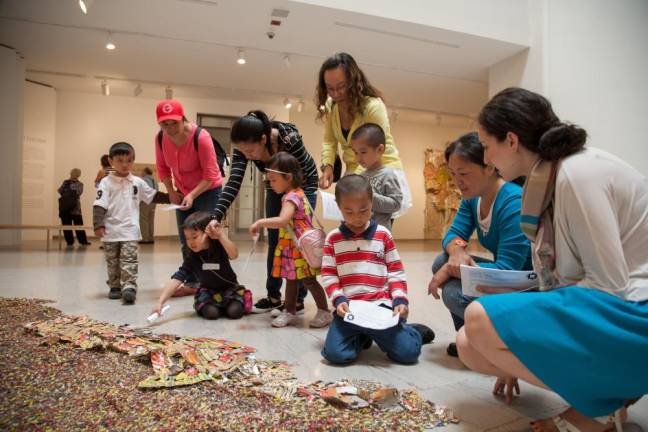OTTY Honoree 2020 New York Community Trust: How New Yorkers Pay It Forward
The New York Community Trust finances projects to build a better city for tomorrow, using the generosity of generations past

Francis Florio was a widower who made his living in real estate. He passed away in the early 1970s, and details about his life are hard to come by these days, except for one fact: Mr. Florio had a friend who died of a blood disorder, and in her memory he endowed a fund for the study of blood diseases with the New York Community Trust in 1974.
A decade later, when local government was struggling to respond to a mysterious new disease spreading through the city, the Trust was prepared. It drew from The Francis Florio Fund to issue one of the first private grants for research into HIV/AIDS. Thanks to the New York Community Trust’s stewardship, Florio’s gift continued to support AIDS research through the 1980s and ‘90s, and his bequest continues finance research and clinical trials in New York City to this day, paving the way for future breakthroughs decades after his death.
For New York Community Trust President Lorie Slutsky, stories like Florio’s show how the Trust powers local philanthropy by channeling New Yorkers’ generosity to respond to the city’s immediate, long-term and future needs.
“What’s kind of unique about my job is that the role of a community foundation evolves naturally with the community,” says Slutsky. “Our mission is to improve the quality of life for all of those who live and work here. The things we are challenged to make better or support are really driven by the changing nature of New York.”
Few New Yorkers have watched the city change as closely as Slutsky, who has been working with the Trust since 1977 and under whose leadership the organization’s endowment has grown exponentially. Founded in 1924, the Trust’s first charitable fund was established with just $1,000; today the foundation’s endowment is almost $3 billion.
In 2019 alone, the Trust issued more than 11,000 grants to individuals and organizations working on causes ranging from heroin addiction treatment on Staten Island to a Long Island campaign against single-use plastic. Using the Trust’s general fund, the foundation was also able to make funds available quickly following city emergencies including September 11th and Hurricane Sandy.
Thanks to the size of the Trust’s endowment, it sustains long-term relationships with many of its grantees.
“I think I can say that the funding we have received from the Trust is one of the reasons we’re still here after 50 years,” says Kim Sweet, the executive director of Advocates for Children, a charity that has worked with the New York Community Trust over a decade.
“They really understand New York City,” Sweet adds. She points out the Trust’s mastery of the city’s complex government and non-profit sectors, as well as its appreciation for New York’s unique “vibrancy.”
“What I find the most rewarding is, because I have this kind of 100-foot perspective, I can identify these challenges by being in the community and doing site visits and getting a sense of what’s going on on the ground, and then link up with organizations that are all working on a similar issue and then bring them together to focus on the systemic,” says Rachel Pardoe, a program manager at the Trust. “I think that’s a really exciting place to be,”
Since 2015, Pardoe has worked on the Access-a-Ride Reform Group, an initiative to improve public transportation for New Yorkers with disabilities. AARG grew out of the frequent complaints about unreliable service and long delays in the city’s paratransit program that Pardoe heard about from partner organizations working in the field. Issuing grants from its general fund, the Trust helped four local organizations hire staff to lobby the MTA, and within a year the transportation authority had committed to testing a ride-hailing service for New Yorkers with disabilities. Now in its fourth year, AARG is pressing the MTA to expand the on-demand ride service and empower more New Yorkers with disabilities to participate in civic life.
“Our goal is to try to share with our donors a broader view of charitable needs in New York,” says Slutsky. “We try to let them all know that the New York Community Trust, because of its real focus in New York and because it has got a deep bench of staff expertise, can really help turn donors’ interest to work. It’s not only meeting today’s problems, but it has the ability to meet tomorrow’s problems, things we never thought about.”
When Francis Florio wrote that he wanted to “hasten the conquest of human misery and physical suffering,” he could never have conceived of the AIDS crisis or the role his fund would play in fighting it. But thanks to the New York Community Trust, Florio and thousands more New Yorkers are able to reach a helping hand far into the future.
"The things we are challenged to make better or support are really driven by the changing nature of New York.”